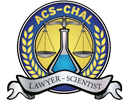What is Supervised Release?
There are two different types of Federal Supervision – probation and supervised release. Probation is given to people who are not sentenced to prison but are still required to abide by conditions set by the Judge and report to a United States probation officer for a period of time.
Supervised release is a term of supervision served after you are released from prison. The court imposes supervised release during sentencing in addition to the sentence of imprisonment. For some federal crimes there are mandatory minimums when it comes to supervised release; these crimes usually involve a minor victim, drug possession crimes and violent crimes. However, early termination of such supervised release is still possible.
What Does It Take To Get Early Termination Of Supervised Release
Under federal law, a court may terminate a term of supervised release after the expiration of one year of supervision, if it is satisfied that such action is warranted by the conduct of an offender and it is in the interest of justice. The good news is that early terminations may occur even in cases where a statute originally required the sentencing court to impose a term of supervised release in excess of one year.
In determining whether you are a good candidate for early termination the judge will consider some of the same factors that were considered during your sentencing phase, such as: your criminal history, age, current employment, financial status, risk of engaging in future criminal activity, and other similar factors. However, courts want to justify early release with exceptionally good behavior on part of the defendant. What constitutes exceptionally good behavior depends on each individual’s circumstances and it requires something more than simply complying with the original conditions of your release. The court wants to see that you have truly changed.
For example, in United States v. Spinelle, the Defendant was convicted of drug charges and sentenced to 18 months in prison followed by 3 years of supervised release. He was granted early release because he demonstrated “exceptionally good behavior” by doing the following:
While still incarcerated he:
Attended an extensive number of courses and became a chemical dependency therapist, authored a book on ways to induce therapeutic dialogue for use in substance abuse groups and drafted two chemical dependency lectures.
While released to a half-way house he:
Worked for a summer Workshop Awareness and Prevention Project and volunteered to provide drug therapy counseling to at-risk middle school students.
While on supervised release he:
Served as an apprentice therapist on chemical dependency, authored several state and federal foundation grants that led to the Michigan Department of Corrections obtaining funding of drug counseling programs and he became a State licensed professional counselor.
As you can see, the Defendant did above and beyond what was required of him. He didn’t just wait for the mere passage of time to request early release – and neither should you. These are the types of actions a court will want you to demonstrate before granting your request. After all, there is nothing exceptional about simply following the rules and abiding by the law. It’s expected.
If you or a loved one is on supervised release and you would like an early termination call the Law Office of Barton Morris today where a highly experienced federal criminal defense attorney will aggressively advocate for your rights. We represent clients all across the state of Michigan.



